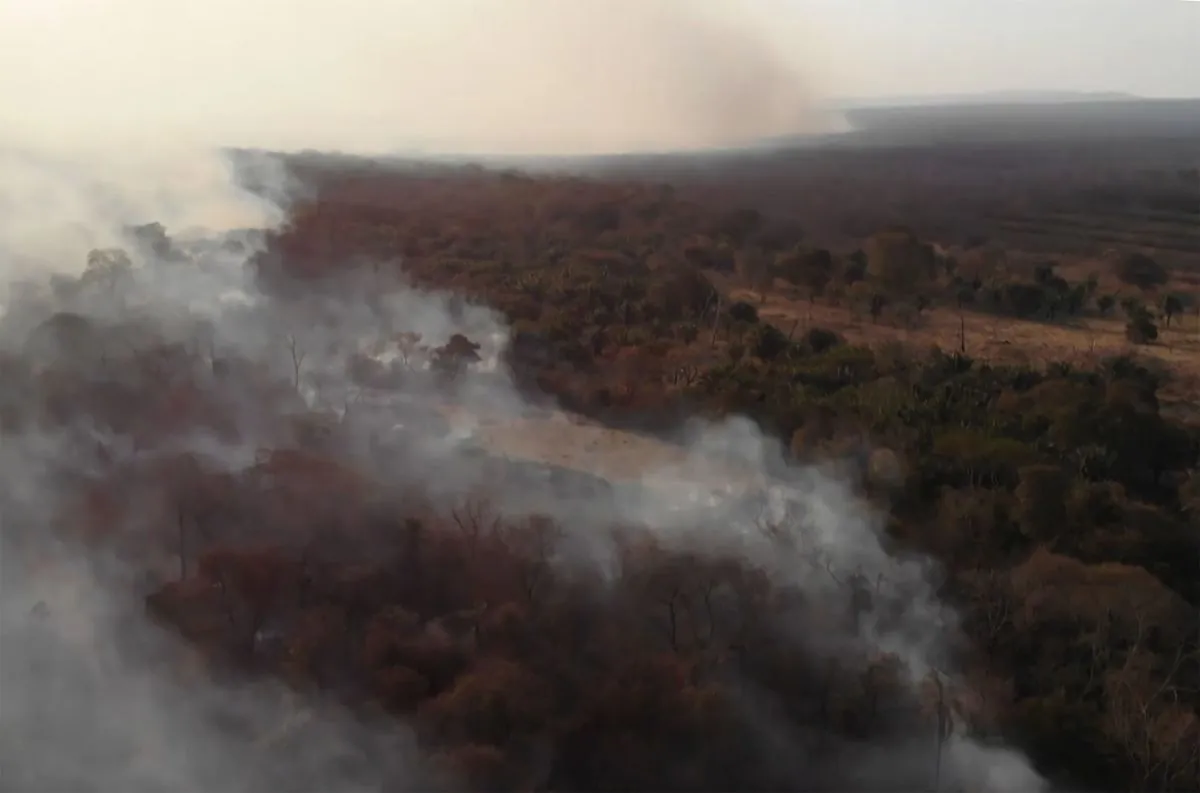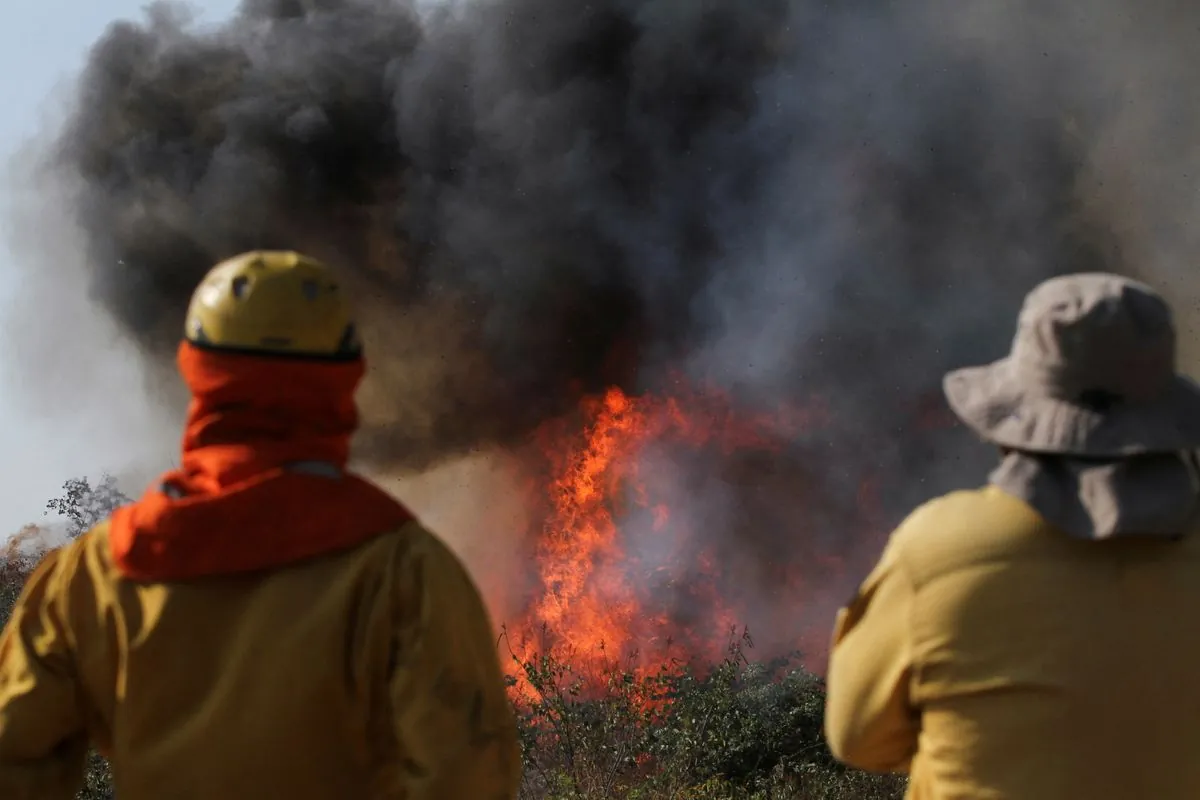Bolivia Battles Worst Wildfires in 14 Years, 3 Million Hectares Burned
Bolivia faces its most severe wildfire season in 14 years, with 3 million hectares already burned. Residents evacuate as firefighters struggle to contain the blazes, impacting agriculture and local communities.

Bolivia, the 28th largest country in the world by area, is currently grappling with its most severe wildfire season in 14 years. As of August 29, 2024, an alarming 3 million hectares (7.5 million acres) of land have already been consumed by flames, with the peak fire season still looming ahead.
In the lowland region of Santa Cruz, residents like Mario Guasasi are evacuating their homes, fearing the rapidly approaching fires. "We are afraid of the fire getting here. My house might burn, and then what will we do?" Guasasi expressed his concerns as he packed his belongings into a truck.
The situation is particularly dire in Concepcion, located on the edge of the Amazon rainforest, which covers about 43% of Bolivia's territory. Firefighters, clad in yellow suits, are working tirelessly to combat the blazes and evacuate villages. Commander Wilson Lupa, leading a firefighting operation, described the scale of the challenge: "The fire front goes on for miles."

Bolivia has recorded 36,800 fire outbreaks so far this year, second only to the record set in 2010. The fires are expected to continue until December 2024, with the total affected area likely to increase significantly.
The impact on local communities and the environment is severe. Maria Suarez Moconho, an Indigenous community chief, highlighted the devastating effects on agriculture and food supplies: "We live from agriculture and now nothing grows, everything is dry. The fire burns everything."
Environmental experts and opposition figures have criticized government policies that have contributed to the crisis. Over the past decade, Bolivia has seen major land clearances as focus shifted from gas production to crops like soy and cattle farming. Cecilia Requena, an opposition lawmaker, noted that "more and more land is burned," often resulting in "completely uncontrolled forest fires."
The Bolivian government has called for international aid to help combat the fires. However, critics argue that current fines for illegal burning are insufficient, with Pablo Solon, a climate policy specialist, pointing out that penalties are less than 2 bolivianos (30 U.S. cents) per hectare.
"Almost 68% of the burned areas were pastures. Who burns pasture? You know this is from cattle ranching."
The fires also threaten Bolivia's cultural heritage, including distinctive wooden churches in the lowland region. Adalid Ordonez Palachay, parish priest of Concepcion cathedral, expressed concern about the constant danger to artifacts and buildings.
As Bolivia, one of the most biodiverse countries in the world, faces this environmental crisis, the situation underscores the delicate balance between economic development and environmental preservation. The country, known for its rich natural resources including the world's largest known lithium reserves, must now confront the challenges posed by climate change and land management practices to protect its unique ecosystems and communities.


































